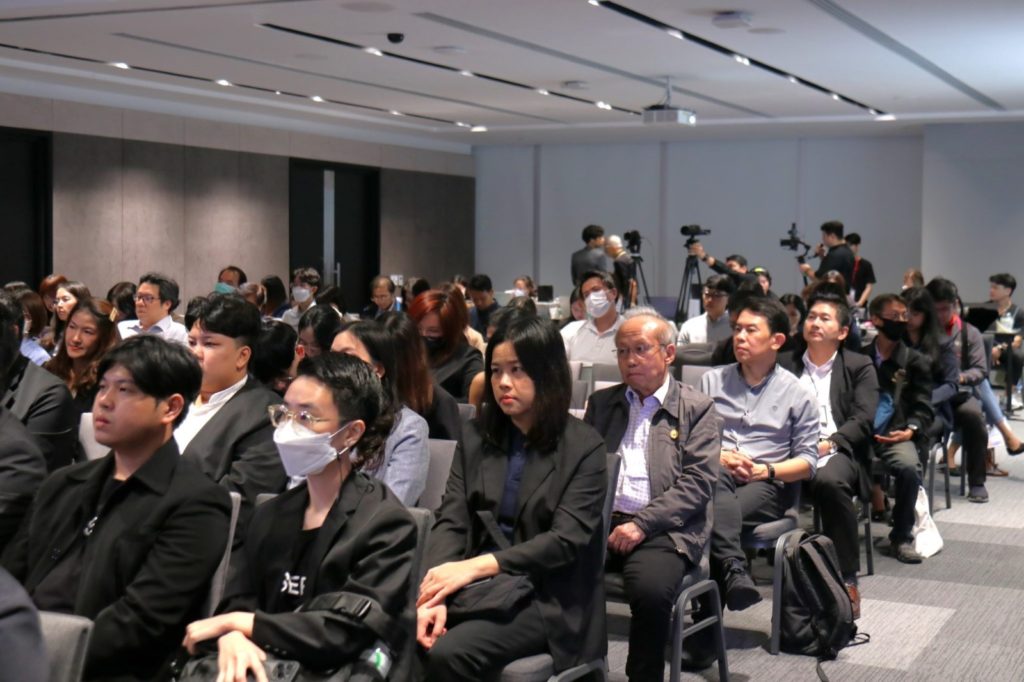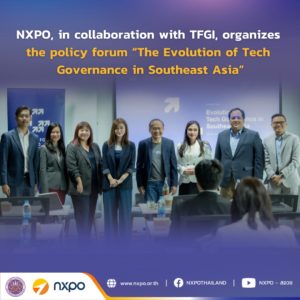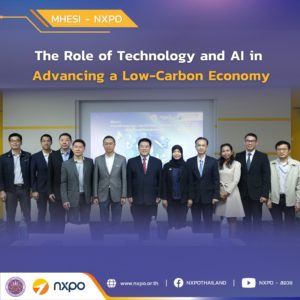NXPO, in collaboration with IRIS Consulting, hosted the Thailand Talent Landscape event on 5 April 2024. The seminar unveiled workforce requirements expected from 2025 to 2029 across 10 target industries, drawn from survey data collected from over 300 enterprises in Thailand. These insights help guide workforce development and planning over the next five years.
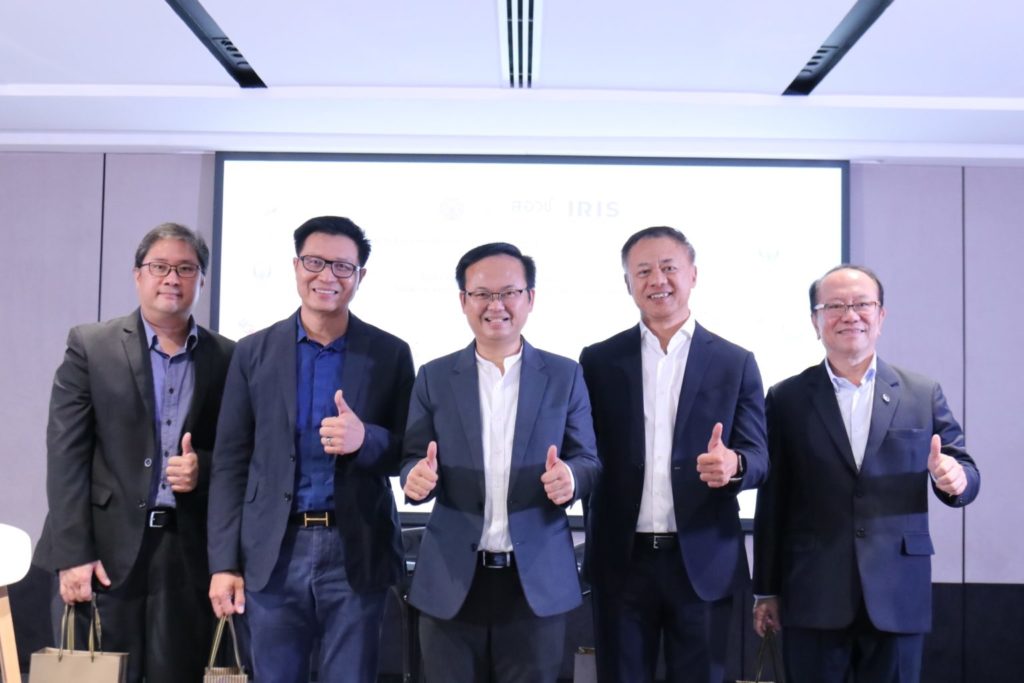
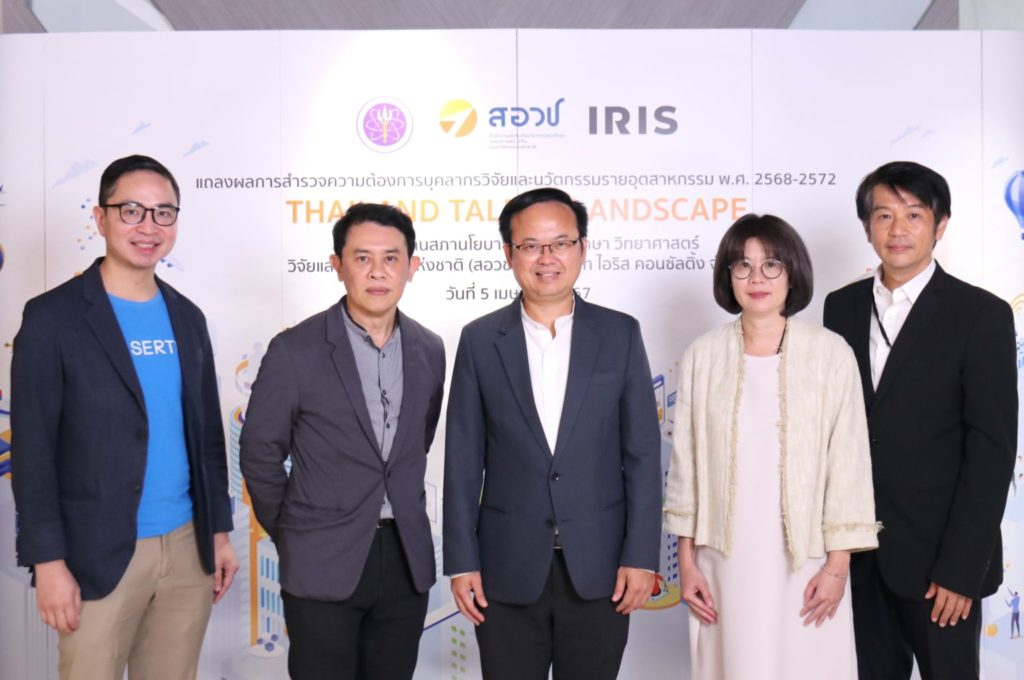
NXPO President Dr. Kitipong Promwong inaugurated the seminar, expressing gratitude to IRIS Consulting for conducting the survey in partnership with NXPO. The study aimed to provide valuable insights for government bodies and educational institutions to design workforce development programs to bolster Thai industries. In support of this initiative, NXPO established STEMPlus, a platform facilitating skilled workforce development for enterprises, students, training centers and the public. Through STEMPlus, enterprises can obtain certificates for 250% tax deductions on employee development expenses and 150% deductions on STEM employment. Last year, the platform certified 5,000 STEM employments, with projections to reach 10,000 this year. Certified courses are expected to upskill 100,000 workers by year-end.


Thailand is facing challenges in multiple fronts including the economy, society and environment. With fewer than 100 large corporates in the system, half of which are multinational companies, the Thai economy is vulnerable, said Dr. Kitipong. He emphasized the necessity to increase the number of enterprises to reduce the risks. To address the widening social gap in Thailand, NXPO introduced a social mobility initiative targeting to facilitate upward social mobility for 1 million individuals by 2027. He further addressed the challenges posed by climate change, affecting trade, investment, and quality of life. He asserted that all these national challenges require skilled manpower to address.


Ms. Pensuda Laosiripojana, Managing Director at IRIS Consulting, presented key findings from the study, revealing trends in each target industry:
- Next-generation automotive: Transitioning from combustion engines to electric driving systems.
- Smart electronics and industrial robotics: Growth plateauing due to emphasis on assembly over technological development.
- High-income and wellness tourism: Aiming to position Thailand as a wellness and rejuvenating destination through advanced technology and competitive pricing.
- Agriculture and biotechnology: Rising focus on sustainable agriculture driven by heightened environmental awareness.
- Food processing and future food: Emphasis on sustainable and health products, including alternative proteins, functional foods, and foods for the elderly.
- Aviation and logistics: Striving to establish Thailand as an ASEAN hub for aviation and aircraft maintenance.
- Biofuels, biochemicals, and biotechnology: Facing limited expansion due to increasing electric car adoption and stringent import and export regulations.
- Creative economy: Projected growth fueled by government policies and increased funding towards research, skill development, creative industry and digital infrastructure development.
- Digital industry: Promising growth fueled by increased online activities.
- Medical hub: Anticipating growth driven by affordable pricing and quality healthcare.
The study also reveals the adoption of technology and innovation to enhance efficiency and the demand for talents with specialized skills across all industries. In addition, proficiency in language, teamwork, and adaptability to change emerges as essential skills across industries.
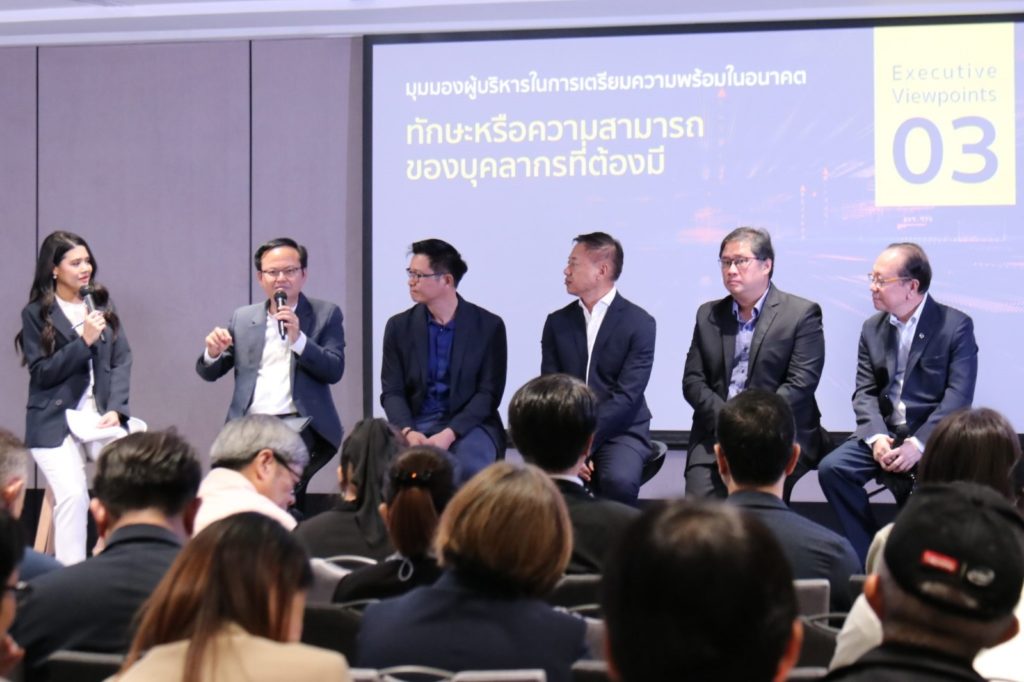
The event also featured a panel discussion with executives from each target industry:



Mr. Khanchit Chaisupho, Vice President of External and Government Affairs at Great Wall Motor Manufacturing (Thailand), stated that the next-generation automotive industry is hoping for exponential growth to make substantial contribution to the economy. Moreover, the industry expects to ramp up auto part manufacturing for both domestic car production and export. He added that recent growth has posed both opportunities and challenges, calling for workforce upskilling in the automobile and auto part manufacturing.
Mr. Sanin Triyanond, Managing Director of Patum Vegetable Oil and Chairman of Thai Biodiesel Producers Association, discussed global attention towards the Bio-Circular-Green Economy (BCG) and described international trade as becoming more complex, posing challenges to even countries with abundant raw materials like Thailand. Therefore, it is imperative to have a broad understanding of the BCG industry in order to compete effectively.
Mr. Udorn Kongkakate, Senior Vice President B2B2C Business at SCGJWD Logistics and Chairman of the Logistics Subcommittee, revealed challenges facing the logistics industry, including changing in customers’ needs, emerging technologies and necessity to achieve carbon neutrality. Logistics companies must plan to address these challenges effectively to stay competitive.



Dr. Somrit Jantarapratin, M.D., Deputy Director of Information Technology at Bangkok Hospital Group, said that digital healthcare is gaining momentum thanks to the government policy. However, the challenge lies in implementing technology and ensuring that the workforce possesses necessary skills, particularly in emotional intelligence, attitude, and public mind.
Dr. Anucha Panoi, M.D., CEO & Founder of Doctor A to Z, discussed latest developments in wellness tourism industry. Over the past decade, the Thai healthcare sector has turned their attention to wellness treatment, focusing on exploiting artificial intelligence (AI) and developing genetic testing technology to assess health risks. Therefore, the key to developing the workforce lies in nurturing skill sets aligned with the industry’s trend.
Dr. Nitta Rachjaibun Nuntakwang, CEO of SEEFAH Group, discussed the trend in food processing industry, highlighting continuous growth of future foods. The Thai food industry has the potential to thrive, with a trend towards “One Food One World” development.


Mr. Santi Laohaburanakit, Deputy Managing Director at Vithita Animation, offered his insights into the creative industry. As Thais tend to prefer foreign art, the challenge lies in empowering Thai artists to create works that appeal to both domestic and international audiences, and continuously promoting skill development among workforces.
Mr. Thuchakorn Vachiramon, CEO and Founder of Sertis, discussed the trend in digital industry, acknowledging the widespread use of AI beyond large corporations. Despite technological advancements, there is a need to retain skilled engineering professionals and to develop soft skills such as problem-solving, teamwork, and maintaining a positive attitude.


